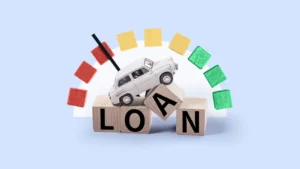Buying your first car is a big deal and often comes with a lot of questions about how you’ll pay for it. Knowing a little about car loans can help you make smart choices, avoid spending money unnecessarily, and get a loan with good terms. Here are some great tips for first-time home buyers to help you get a car loan and stay within your budget.
Calculate Your Budget:
Before you go to a dealership or look at an ad online, set a budget for buying a car. This should be based on how much money you make each month and how much you’ll spend on things like rent, utilities, groceries, and other responsibilities. Financial experts say your monthly car expenses, such as loans, insurance, and maintenance, shouldn’t exceed 15-20% of your monthly income. Staying within a reasonable price range can help you keep your car payment within your means and prevent future financial problems.
Understand and Improve Your Credit Score:
The interest rate you get on a car loan depends largely on your credit score. Check your credit history for errors before you apply and take steps to improve your score if necessary. You can improve your score by paying off your debts and paying all of your bills on time if you can; don’t open new debt or credit applications before you buy a car. These things can temporarily lower your score. It’s usually worth taking the time to improve your credit score if you need to, as this can help you get a better interest rate.
Research Your Financing Options:
A common misconception is that a store is the only place you can get a car loan. You can get a car loan from a bank, credit union, or even an online lender. Shopping around can help you find the best deal. Many banks and credit unions allow you to get pre-approved for a loan online. This will give you an idea of the loan rates and terms without affecting your credit score. Pre-qualifying can give you a better understanding of your budget, give you more leverage in negotiations, and help you avoid last-minute surprises.
Make a Large Down Payment:
When you make a large down payment, you have less money to borrow, which can lower your interest rate and monthly payments. Financial experts say you should aim for a 20% down payment, which will significantly reduce your total loan amount. Even if you don’t have a lot of money saved up, you may want to wait a while to save up for a larger down payment. Making this investment upfront can help you get better loan terms and reduce stress levels in the long run.
Choose the Best Loan Term:
Terms for auto loans typically range from three to seven years. Longer terms can look good because they mean lower monthly payments, but the total cost is usually higher because of the higher interest rates. The longer your loan term, the more likely it is that your loan will be “upside down,” meaning that you owe more on the loan than the car is worth as it depreciates. For first-time homebuyers, a shorter loan term is often better because it saves you money on interest and allows you to build equity faster.
Focus on the Total Cost, Not Just Monthly Payments:
When negotiating with the dealer, don’t just talk about the monthly payment. Instead, think about how much the loan will cost in total. It may be tempting to get a loan with a lower monthly payment, but this usually means a longer term and a higher interest rate over time. Set a fixed price for the car and any other costs that come with it. Make sure that extra fees or charges don’t increase the total cost. Making sure your car loan fits within your budget and long-term financial goals means having a clear idea of how much it will cost.
View Certified Pre-Owned Vehicles:
While a new car can be tempting, a certified pre-owned vehicle can be a better deal, especially for someone buying their first car. Certified pre-owned vehicles have been thoroughly inspected, are usually in good condition, and often come with a warranty, making them a good choice. Buying a used car can help you stay within your budget and avoid the high depreciation of a new car.
Take the Time to Read the Financing Agreement:
There can be a lot of complicated language in a financing agreement, so it’s important to read and understand everything before you sign it. Find out about interest rates, repayment plans, late fees, and any fees for paying off your loan early. Some lenders will charge you extra fees if you pay off your loan early, so be aware of these potential fees. If you don’t understand something, ask your lender or financial advisor to explain it to you so you know what your responsibilities are.
Conclusion:
These tips on financing a car can help first-time buyers make an informed decision when buying a car. When you set a realistic budget, research your credit score, compare financing options, make a large down payment, choose the right loan term, keep the total cost in mind, and read the contract carefully. With these tips in mind, buying your first car can be fun and good for your finances, allowing you to enjoy it without worrying about money.
FAQs:
1. What is the best credit score to get a car loan?
People with credit scores above 700 can often get better interest rates.
2. How much should I invest when buying a car?
A down payment of about 20% of the car price is the best way to lower your loan amount, get a better interest rate, and lower your monthly payments.
3. Is getting a dealership loan the best option for first-time homebuyers?
You can get a loan from a dealership, but you can also compare rates from banks, credit unions, and online lenders to get the best rates and terms.
4. What loan term is best for someone buying their first car?
In most cases, a three- to five-year term is best because the shorter the term, the lower the interest rate, allowing you to build wealth faster.
5. Can I still buy a car if my credit score is bad?
It is possible, but interest rates are usually higher if you have bad credit. If you improve your score before you apply, you may get better loan terms.




